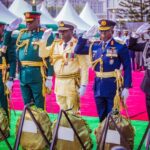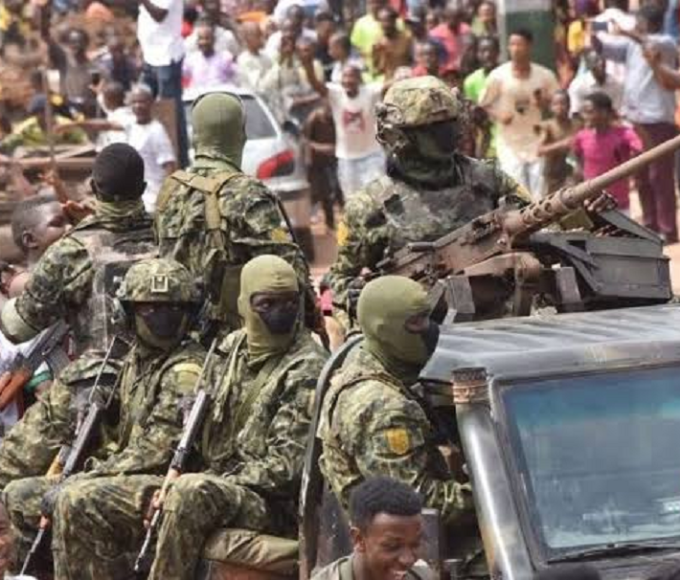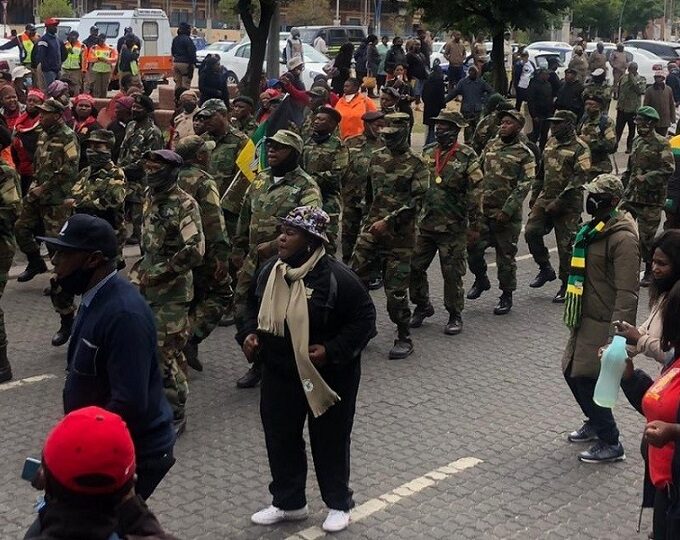Forgotten Heroes: The Untold Stories of African Peacekeeping Veterans
Regional bodies such as the African Union Peace and Security Council can also advocate for standardised veteran welfare frameworks across member states.

Africa has long been a crucial contributor to global peacekeeping, supplying tens of thousands of uniformed personnel to missions in Darfur, Somalia, the Central African Republic, Mali, and beyond. These peacekeepers have braved volatile terrains, operated under complex mandates, and endured psychological, physical, and moral tolls that few civilians ever witness. Yet, many African peacekeeping veterans return home to quiet neglect—unsung, unsupported, and sometimes even invisible.
This article spotlights the hidden struggles and quiet resilience of Africa’s peacekeeping veterans, documenting their contributions, post-service realities, and the urgent need for formal recognition and policy reform.
Africa: A Backbone of Global Peacekeeping
African countries rank among the world’s top troop-contributing nations (TCNs) to United Nations and regional peace operations. As of 2024, more than 78,000 African uniformed personnel serve under UN and African Union mandates.
Top contributors include:
- Ethiopia – over 8,000 personnel in multiple UN missions
- Rwanda – known for disciplined and agile troops in CAR and Sudan
- Ghana and Senegal – long-time contributors with multi-decade deployments
- Nigeria – significant history in ECOWAS, AU, and UN interventions
In operations like UNAMID in Darfur, AMISOM in Somalia, and MINUSMA in Mali, African troops have served on the frontlines of some of the world’s most dangerous peacekeeping theatres.
The Hidden Costs of Service
Despite their service, many peacekeepers face neglect once deployments end. Studies by the African Centre for the Constructive Resolution of Disputes (ACCORD) and Veterans for Peace Africa show common challenges:
- Undocumented injuries and trauma
- Delayed or missing mission compensation
- Lack of reintegration support
- Social stigma around psychological wounds
In some cases, soldiers return home without official recognition, their medals delayed, and benefits entangled in bureaucratic red tape. Many carry untreated Post-Traumatic Stress Disorder (PTSD), having witnessed atrocities or lost comrades during missions.
Veteran Voices: Stories of Sacrifice and Silence
Lt. (rtd) Jean-Paul K., a Rwandan officer who served in Sudan, recalls:
“We held the line in Darfur for months with no leave. When I came back, my family saw a man they didn’t recognise. There was no counsellor, no debrief, no welcome. Just silence.”
Cpl. Grace N., a Kenyan peacekeeper in AMISOM, survived an IED blast in Somalia. She left the army due to physical disability and now sells groceries to survive.
“I gave my leg to Africa’s peace. I just want to be remembered, not pitied.”
These are not isolated cases—they are representative of a systemic failure to honour those who served abroad in Africa’s name.
Peacekeeping Without Protection?
Veterans of peacekeeping missions often fall between the cracks of national defence and foreign service policies. While defence ministries focus on active duty personnel, and foreign affairs cover diplomacy, no single agency owns veteran reintegration.
Major institutional gaps include:
- No standardised database of peacekeeping veterans in many countries
- No uniform criteria for benefits or healthcare post-deployment
- Weak legal frameworks protecting mission-related disability claims
- Little to no psychological support services for peacekeepers
As a result, thousands of ex-peacekeepers remain outside the social safety net despite having risked their lives for national and continental peace.
Signs of Hope: Policy Movements and Reform
Some African nations are taking steps toward better veteran care, especially for peacekeepers:
- Ghana has introduced limited monthly stipends and medical support for retired UN peacekeepers through its Veterans Administration Ghana (VAG).
- Rwanda Defence Force (RDF) has integrated psychological counselling and transition workshops for returning troops.
- South Africa has launched a Military Veterans Department, though its reach remains uneven.
- Nigeria is currently reviewing legislation to consolidate veteran support under one national policy.
Still, most efforts remain fragmented, underfunded, and dependent on donor support or advocacy campaigns.
Policy Recommendations: From Gratitude to Guarantees
To properly honour peacekeeping veterans, governments and institutions must move from symbolic gestures to structural reform. This includes:
- Establishing Peacekeeping Veterans Units in Ministries of Defence
- Mandatory post-deployment health screenings (physical and mental)
- Recognition medals and memorials for major peacekeeping missions
- National peacekeeping registries to track entitlements and service
- Job placement, business grants, or education credits for returnees
Regional bodies such as the African Union Peace and Security Council can also advocate for standardised veteran welfare frameworks across member states.
Conclusion: Remembering the Guardians of Peace
Africa’s peacekeeping veterans stood as guardians in some of the world’s most unstable zones. They did not fight for conquest or glory but for stability, unity, and the dignity of nations torn apart by war. Yet, too many now suffer in silence.
As Africa continues to shape the global peacekeeping agenda, it must also honour those who walked the mission fields. By institutionalising respect and care for veterans, African states not only repay a debt of service—they strengthen the moral foundation of their armed forces and their standing in the international community.
Peacekeeping Veterans Snapshot (2023–2024):
- African peacekeepers currently deployed globally: 78,000+
- Top contributing countries: Ethiopia, Rwanda, Ghana, Nigeria, Senegal
- % of African veterans with access to post-service psychological care: <15%
- Number of countries with formal veteran reintegration policies: Under 10
- Peacekeeping-related veteran welfare programmes under review: 6
Recent Posts
Categories
- Air & Aerospace17
- Border Security15
- Civil Security6
- Civil Wars4
- Crisis5
- Cyber Security8
- Defense24
- Diplomacy19
- Entrepreneurship1
- Events5
- Global Security Watch6
- Industry8
- Land & Army9
- Leadership & Training5
- Military Aviation7
- Military History27
- Military Speeches1
- More1
- Naval & Maritime9
- Policies1
- Resources2
- Security12
- Special Forces2
- Systems And Technology9
- Tech6
- Uncategorized6
- UNSC1
- Veterans7
- Women in Defence9
Related Articles
AFRICAN VETERANS IN POLITICS: INFLUENCE AND CONTROVERSIES
Across Africa, veterans of liberation wars have played a central role in...
ByKing Richard Igimoh, Group Editor ALOJanuary 27, 2026VETERANS – PENSION REFORM AND THE WELFARE OF AFRICAN MILITARY VETERANS
Across Africa, military veterans embody the sacrifices made for national liberation and...
ByKing Richard Igimoh, Group Editor ALOOctober 29, 2025Honouring Legacy: Military Museums and Memorials Across Africa
Africa’s military history is rich, complex, and often untold. From pre-colonial warrior...
Byadmag_adminJune 26, 2025From Combat to Civil Service: Veterans Transitioning into National Leadership
Across Africa, a quiet but significant transformation is underway: former soldiers are...
Byadmag_adminJune 26, 2025













